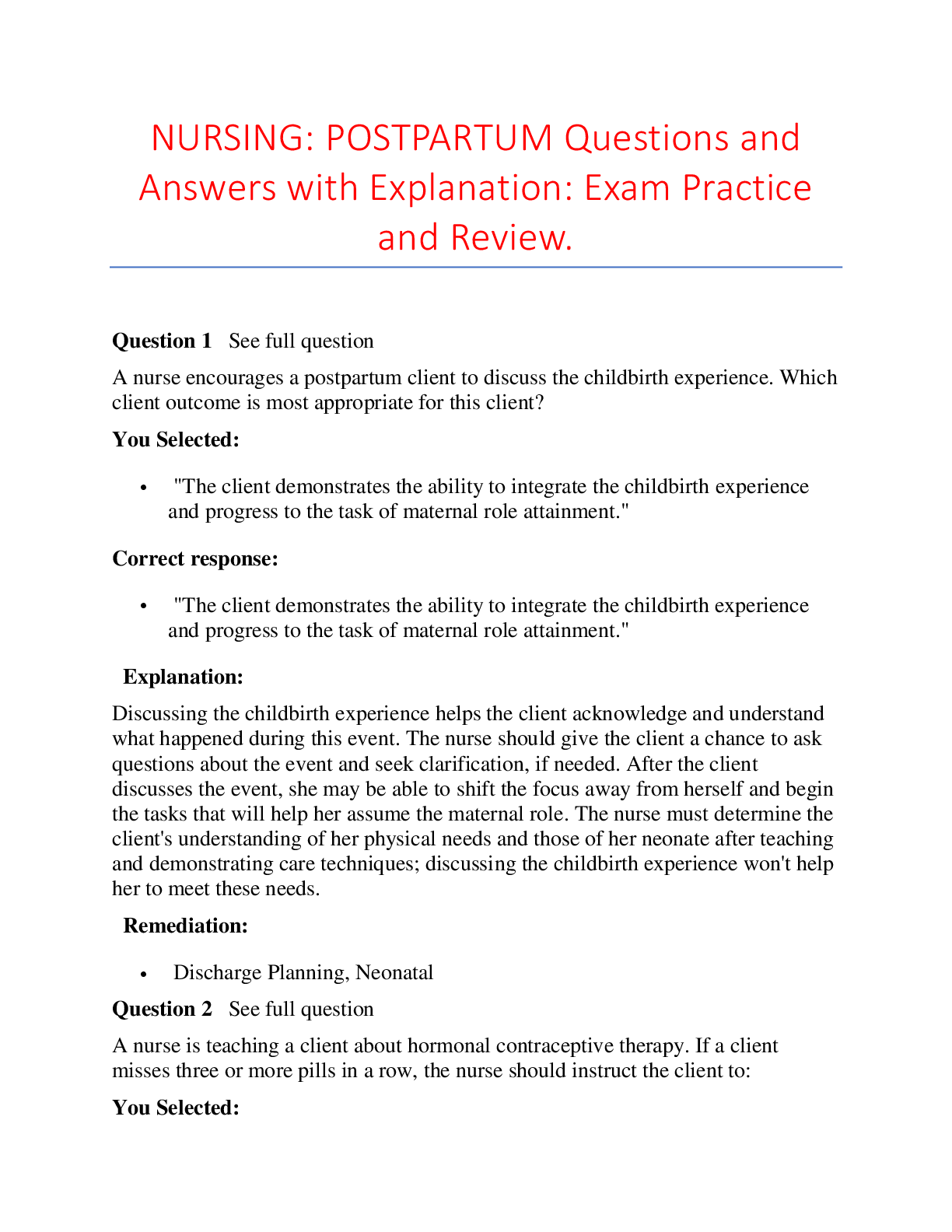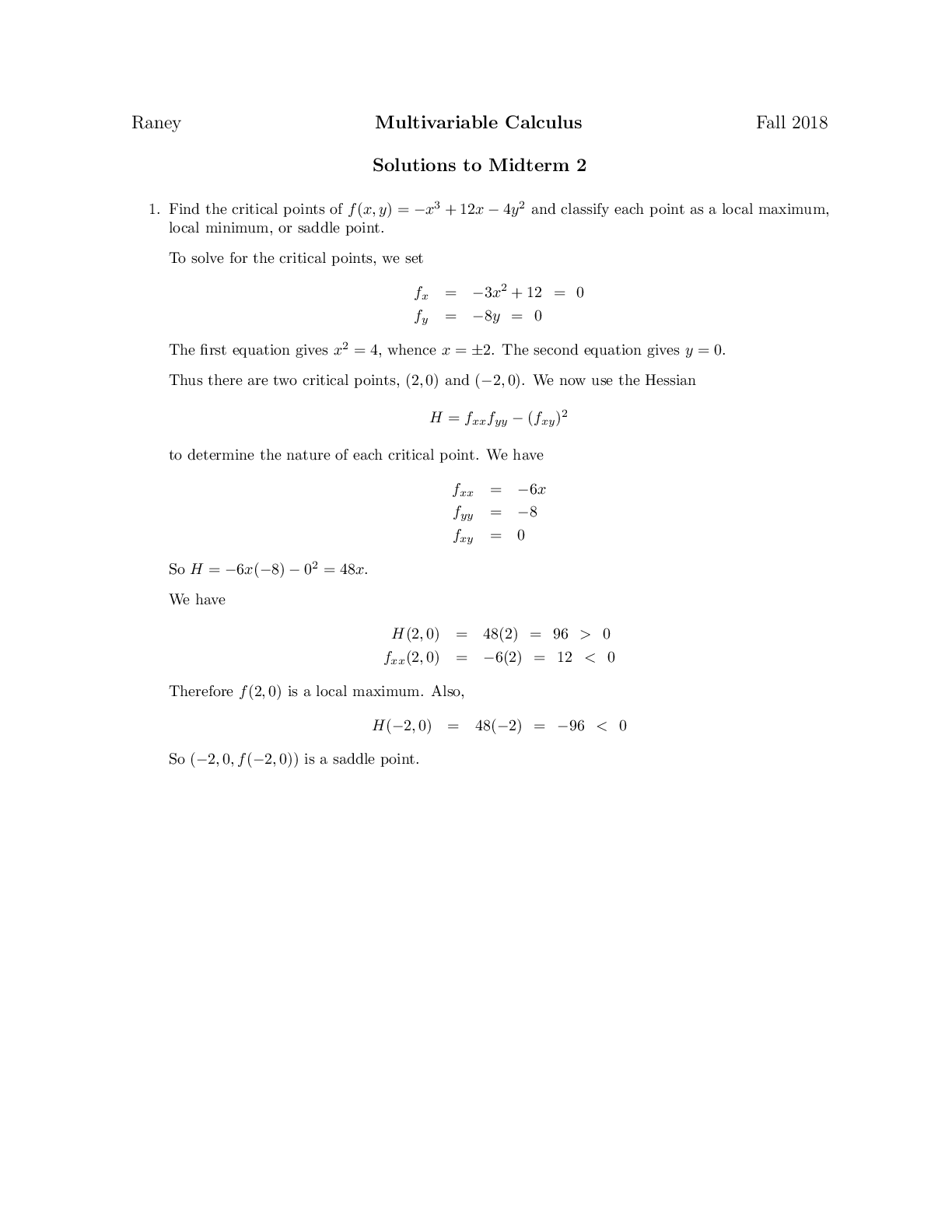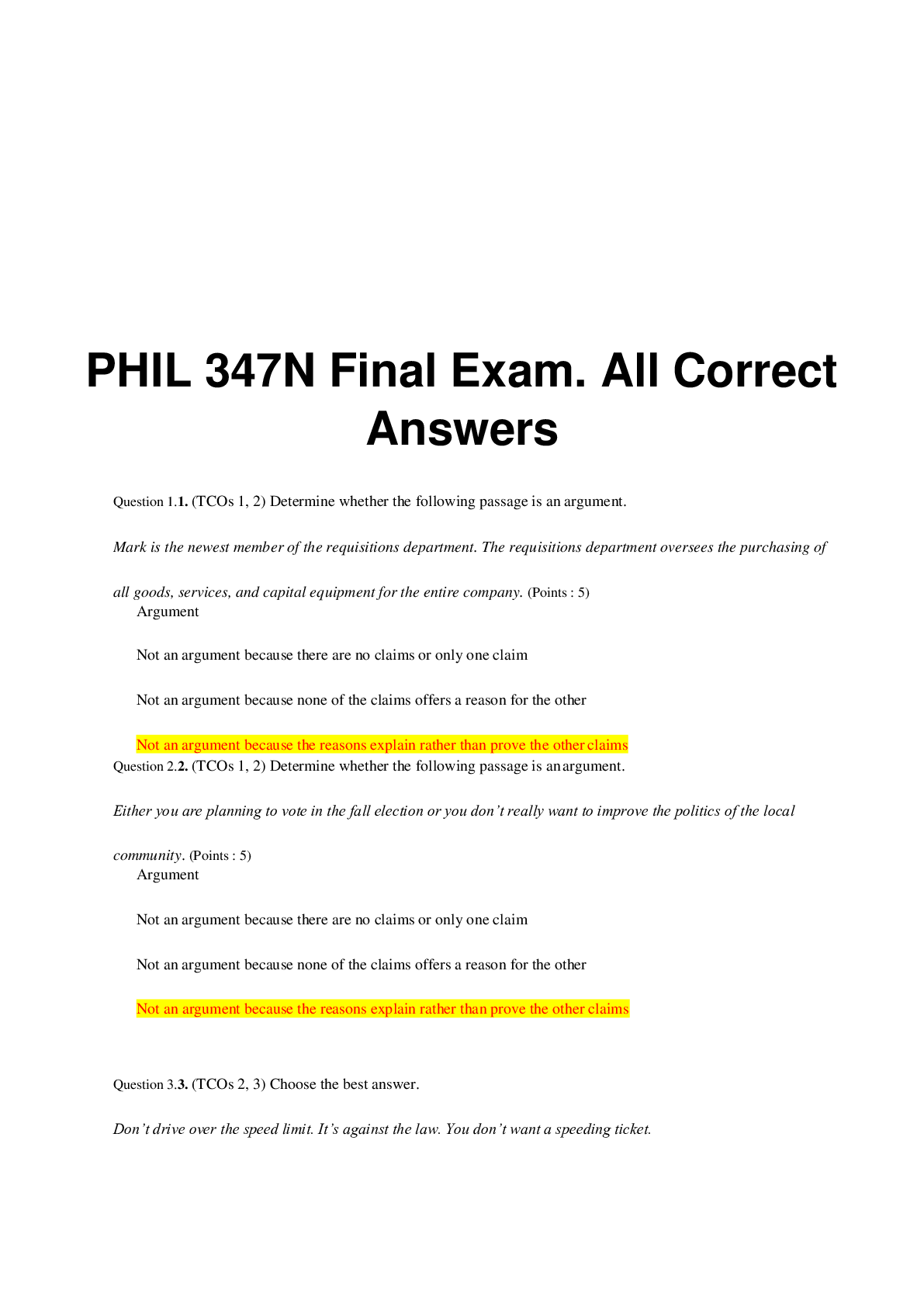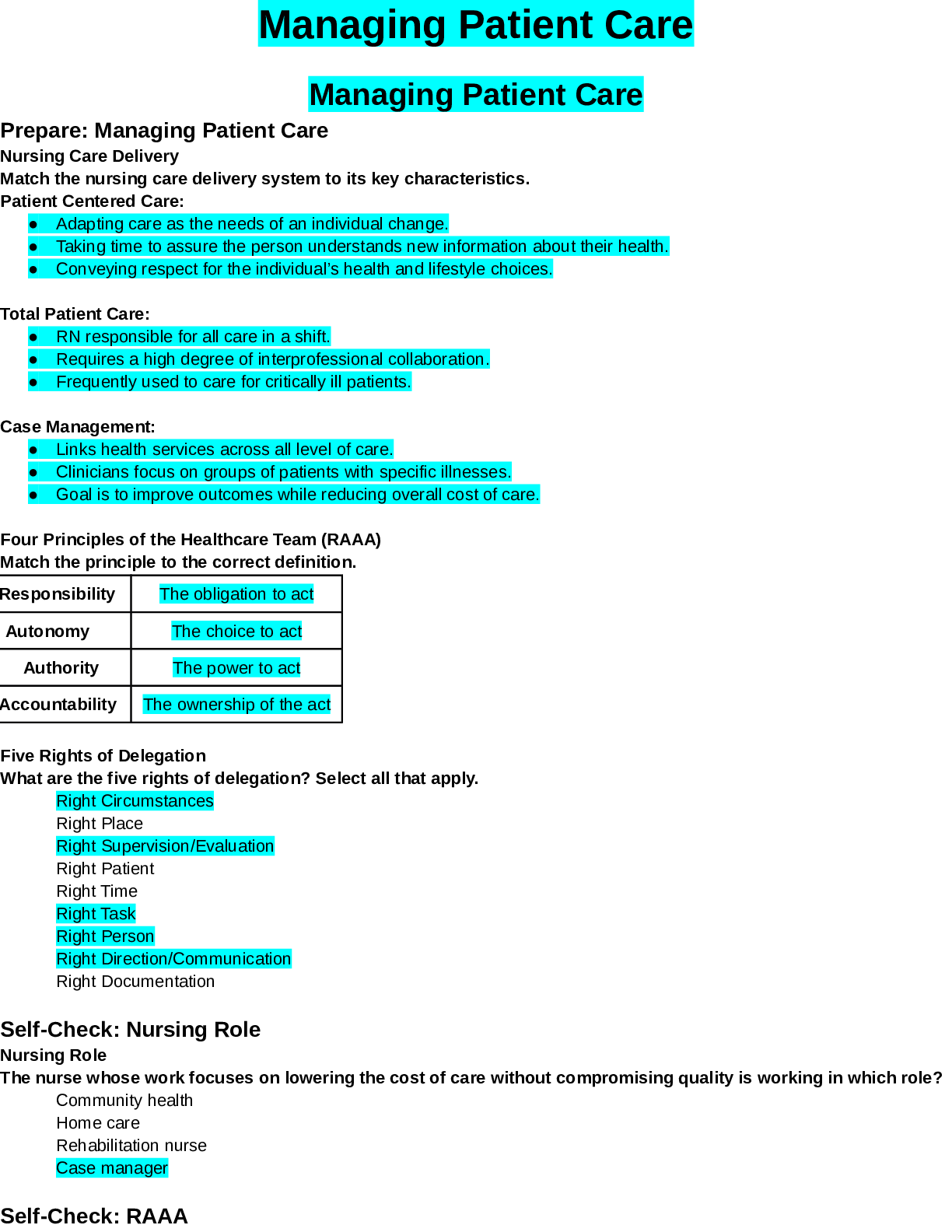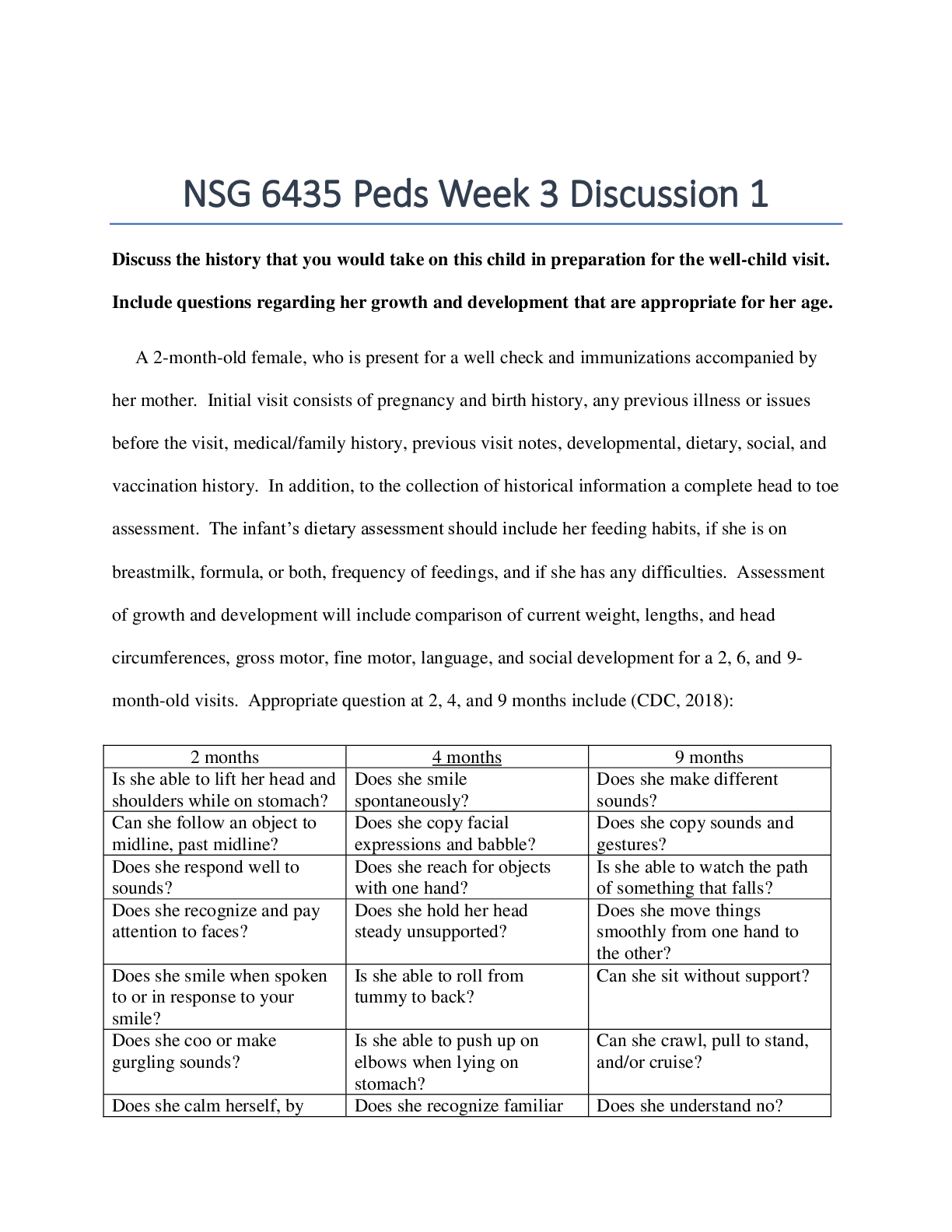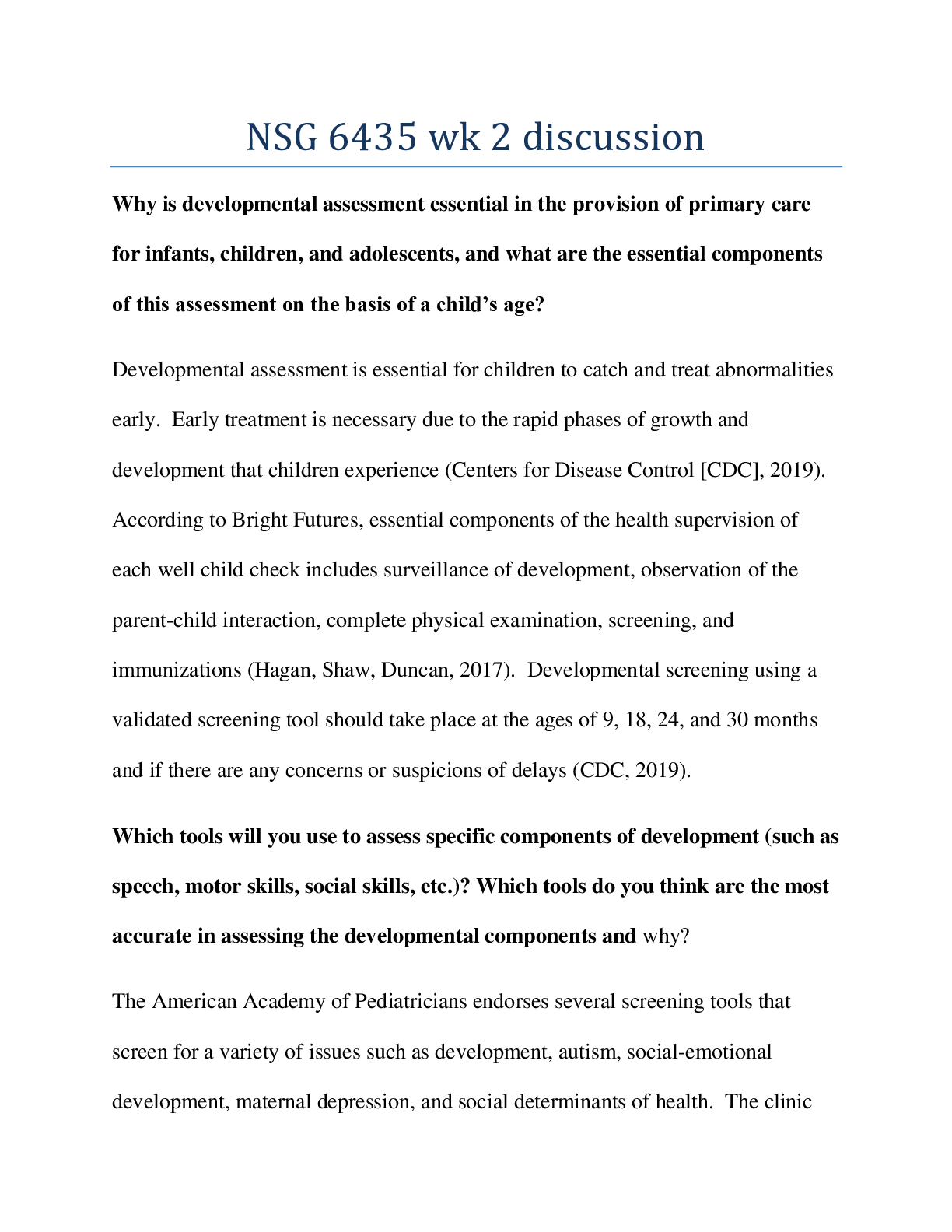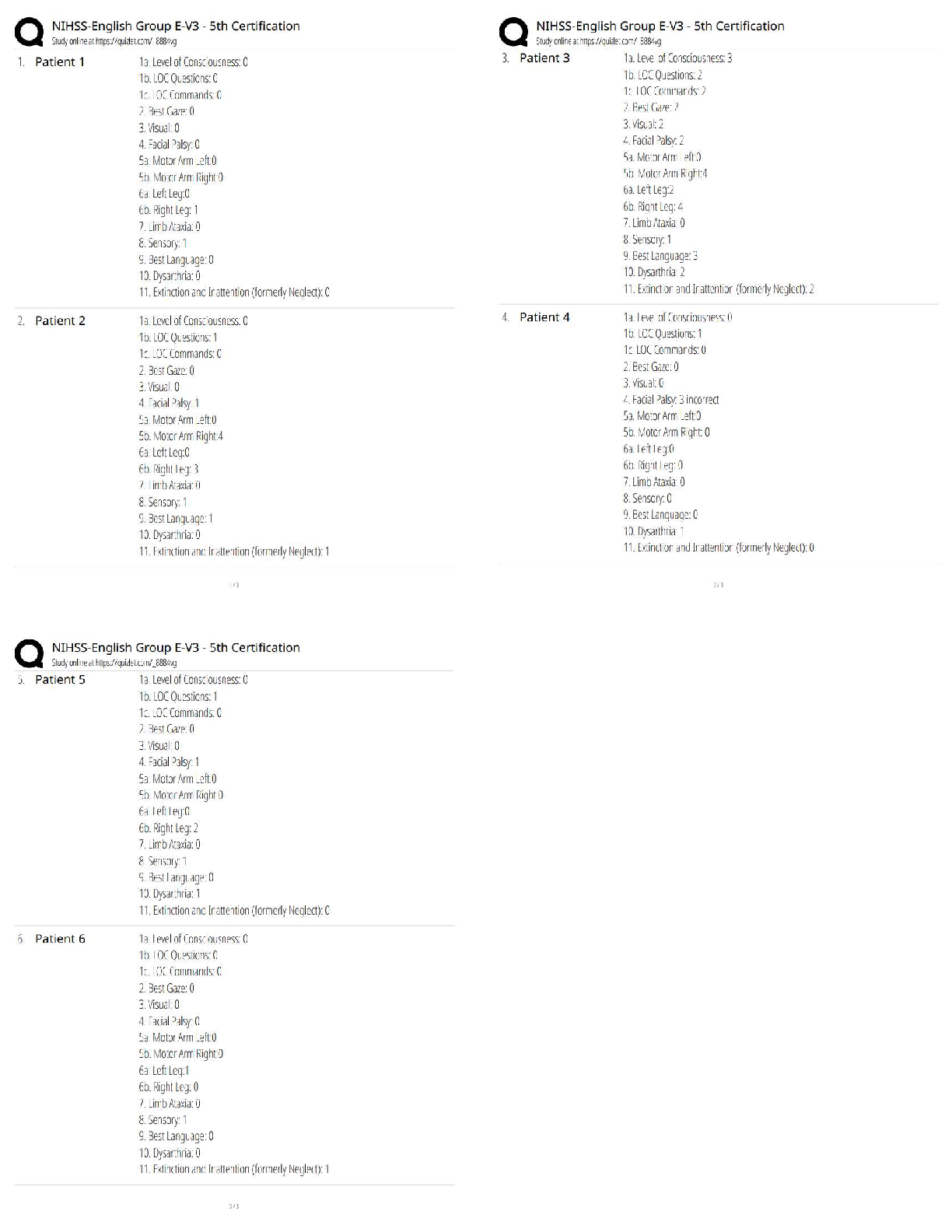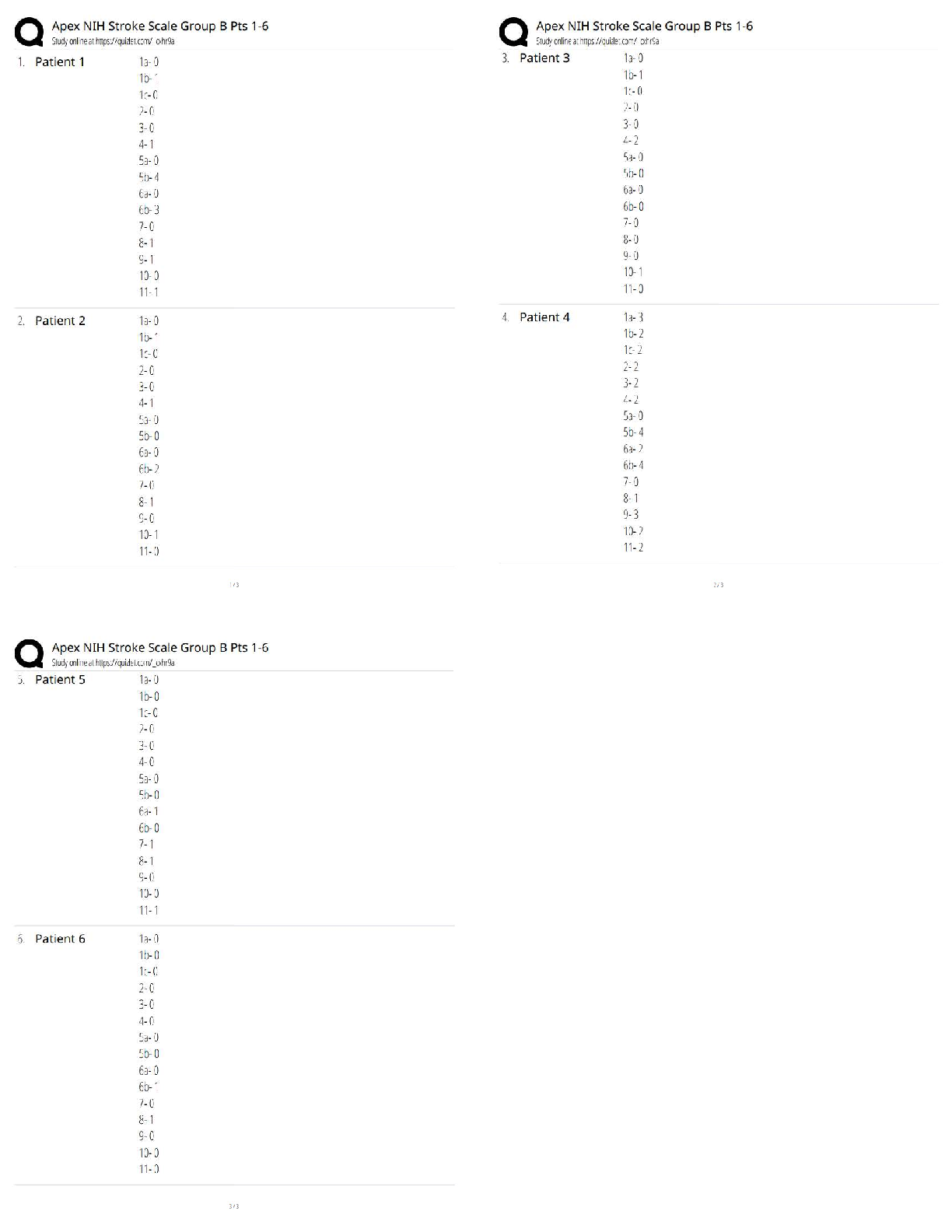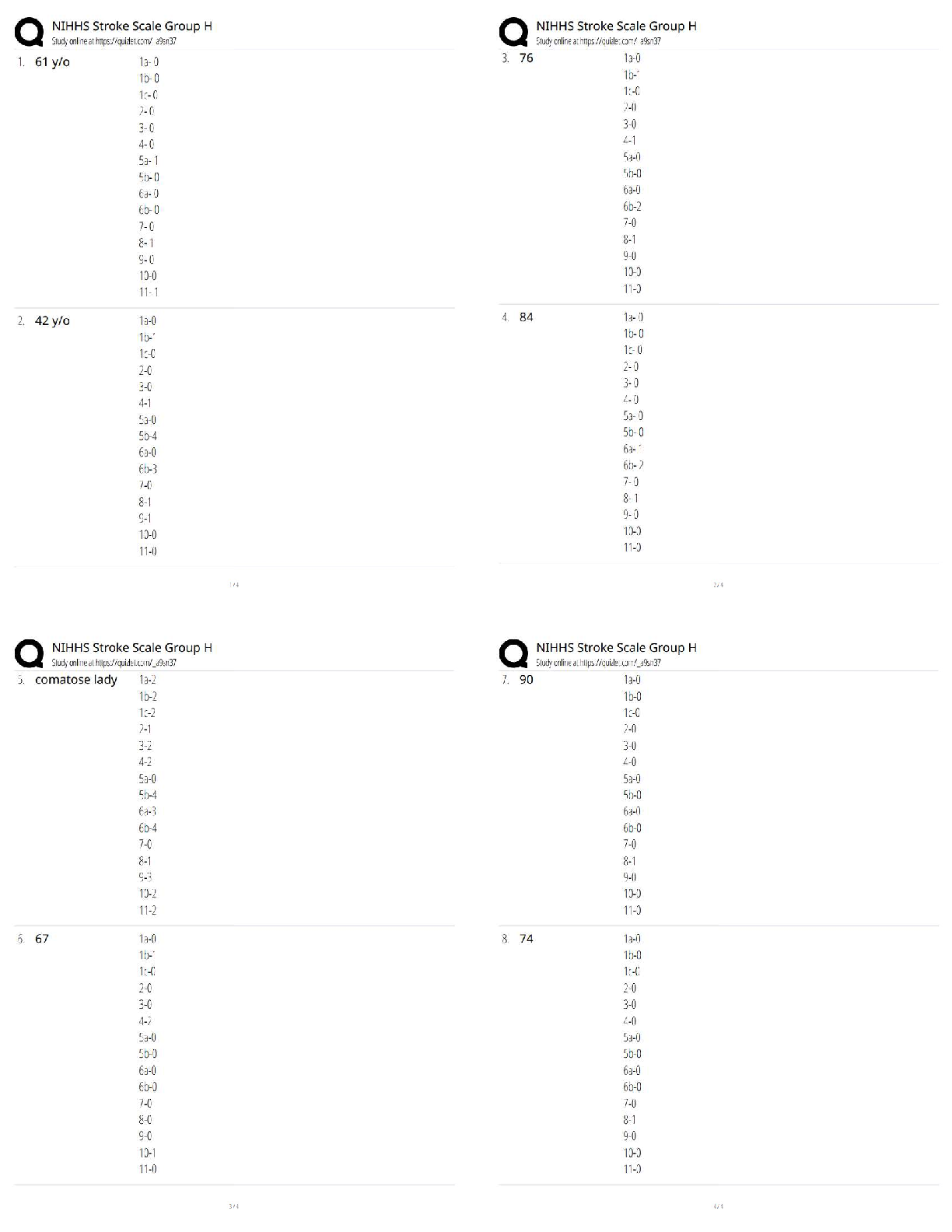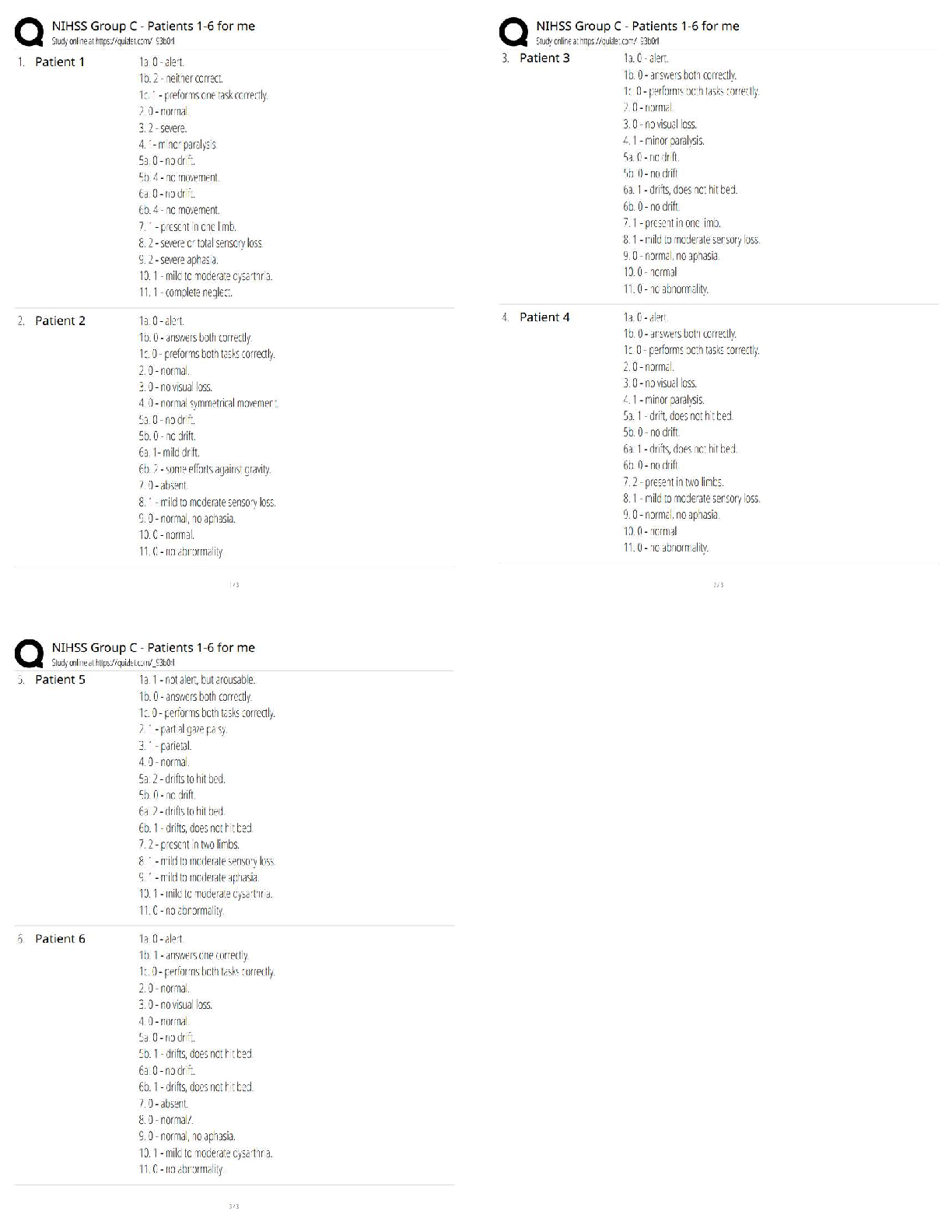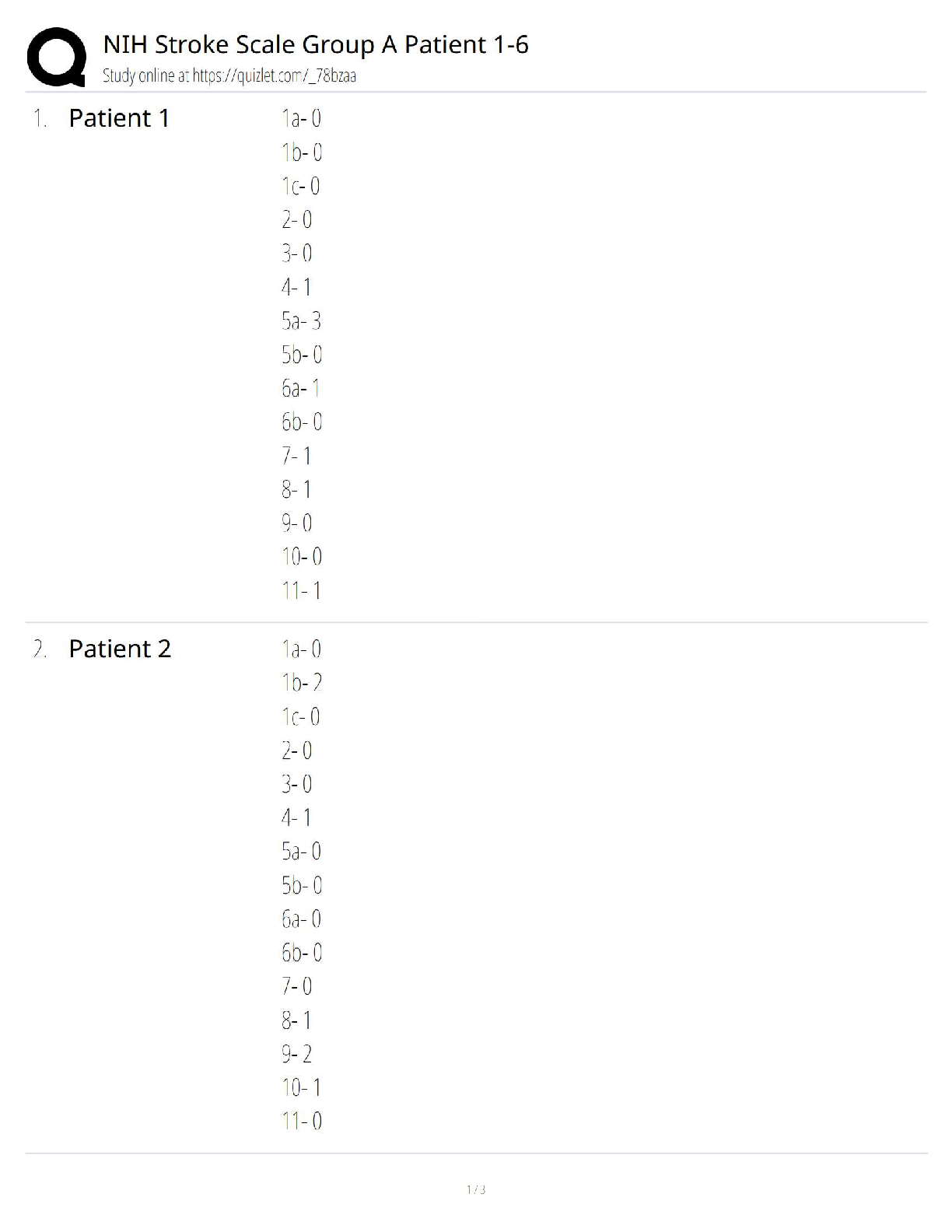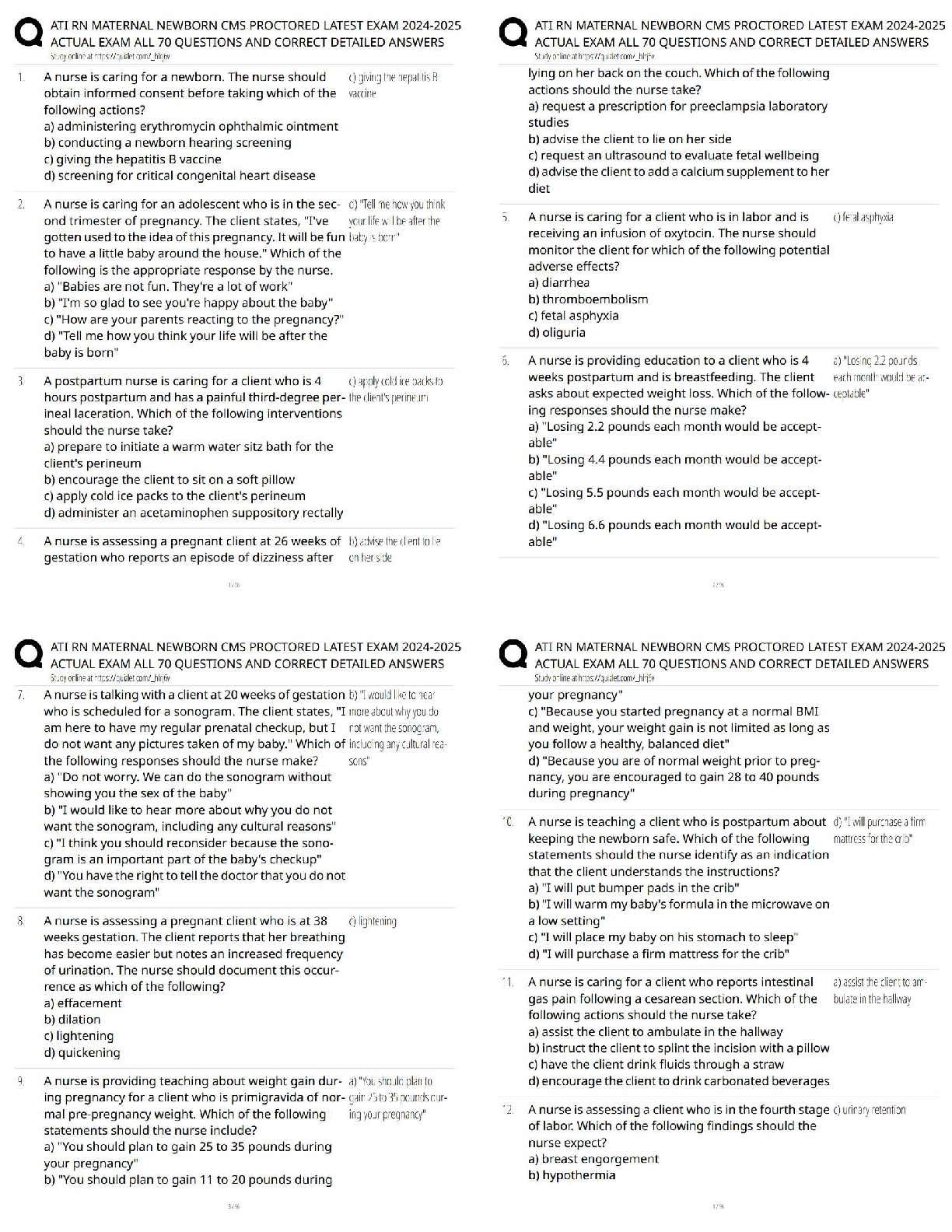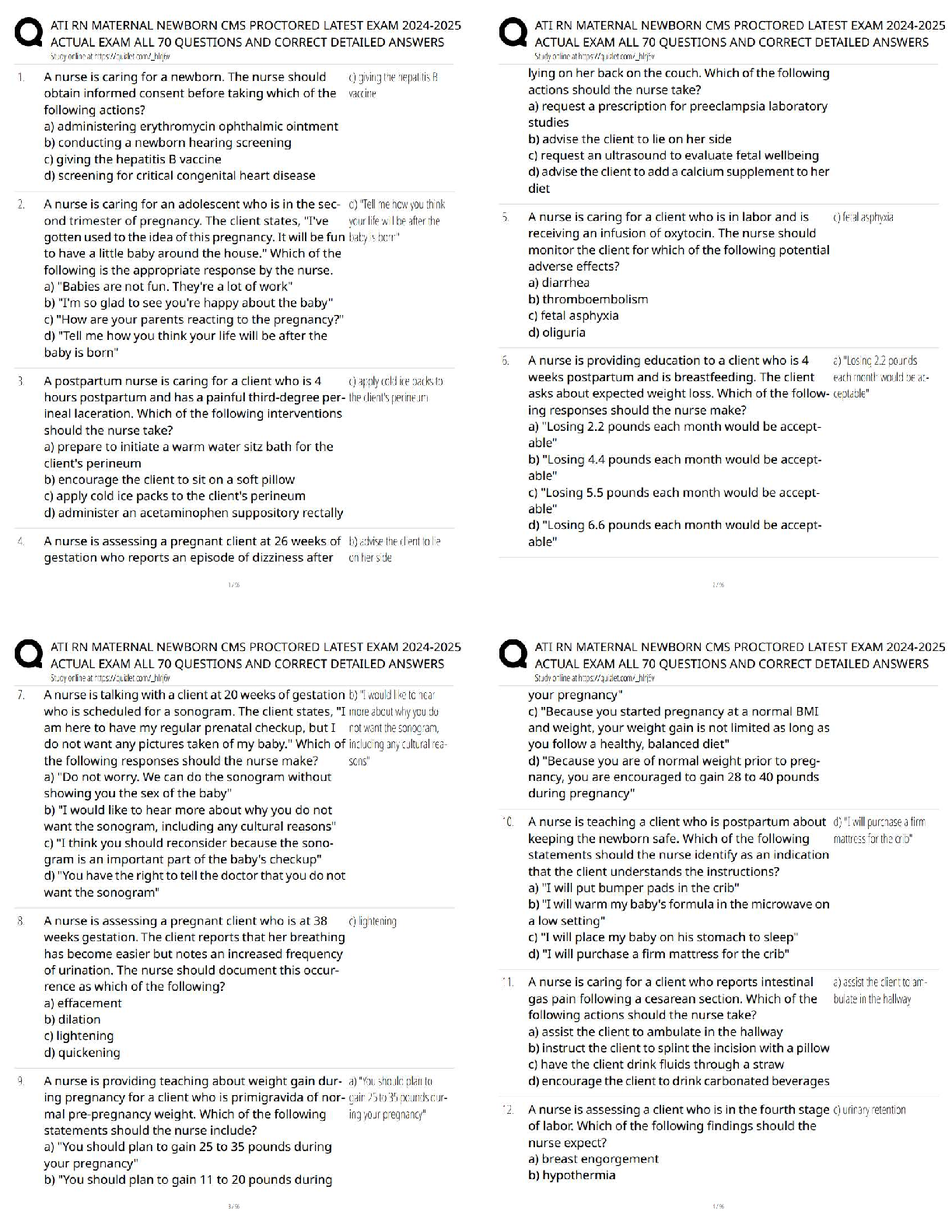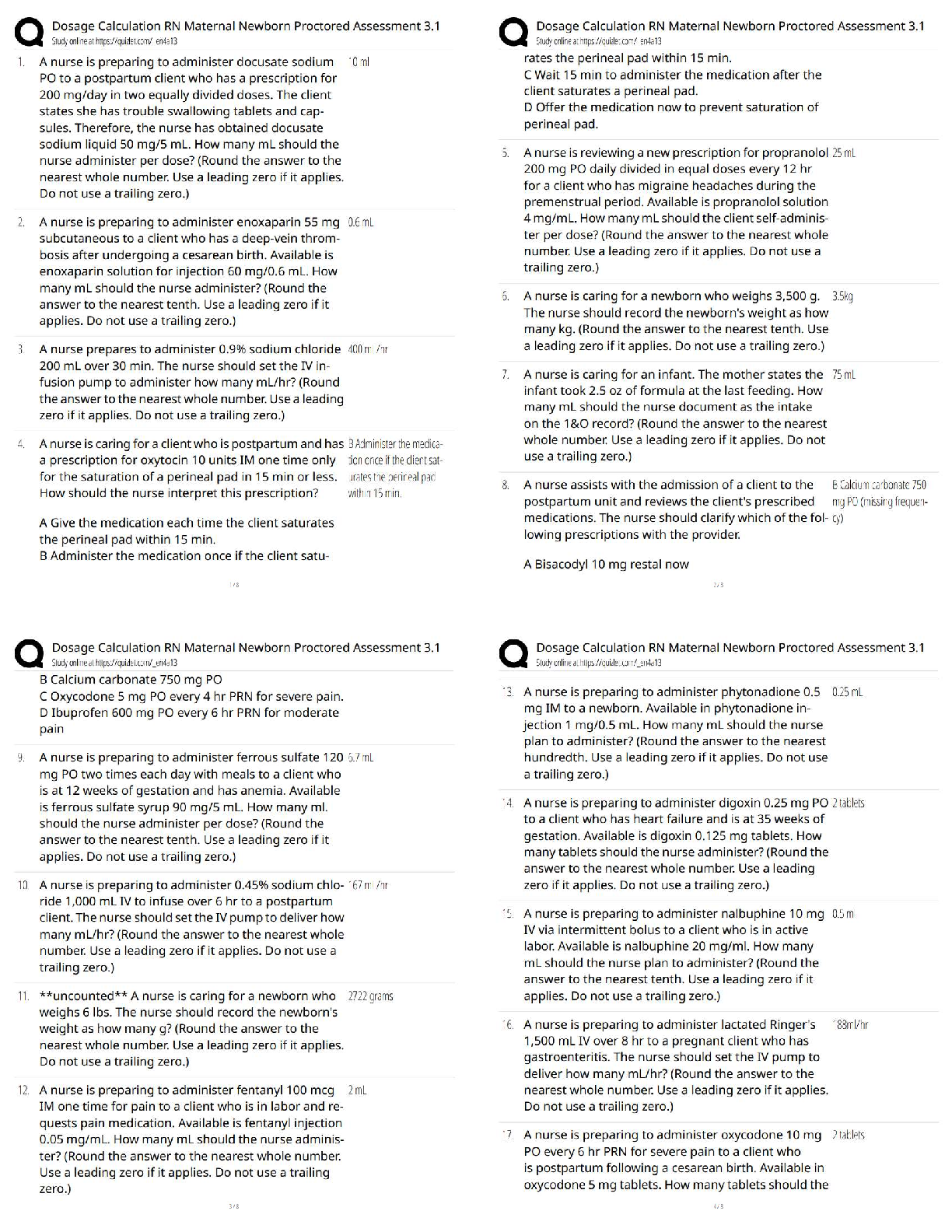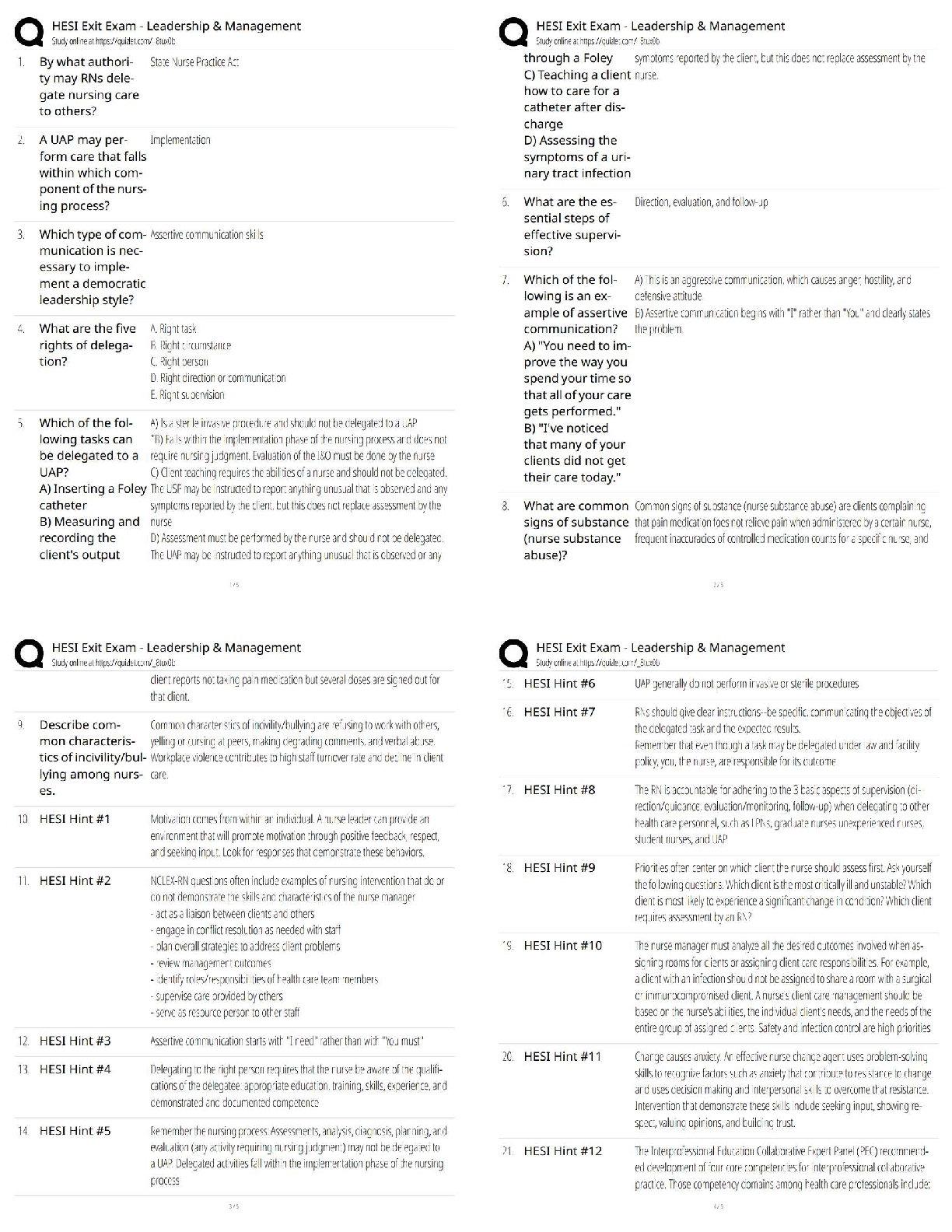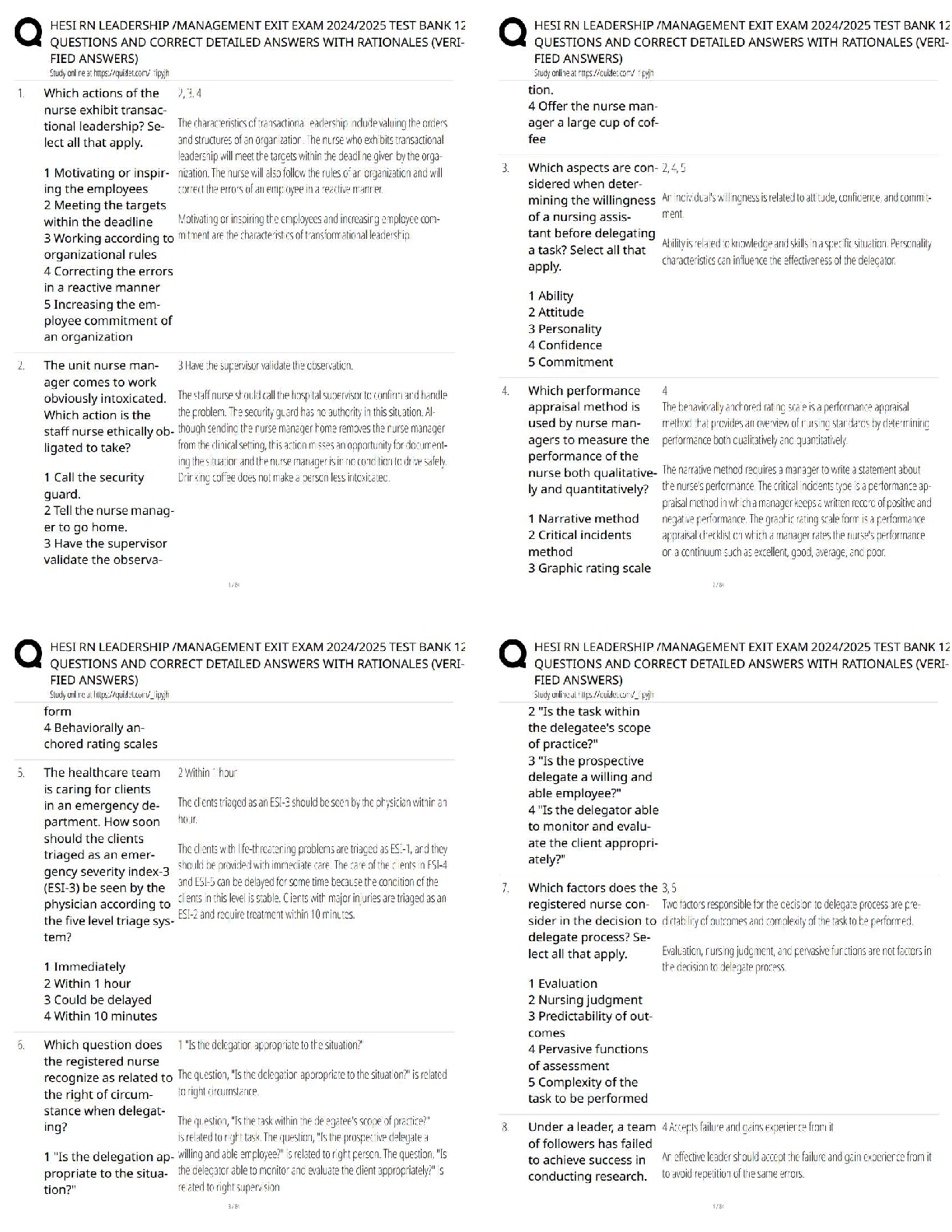Business > QUESTIONS & ANSWERS > Questions and Answers > University of Wisconsin, -Parkside - BUS 273 Org. Behavior (Ch7-12) (All)
Questions and Answers > University of Wisconsin, -Parkside - BUS 273 Org. Behavior (Ch7-12)
Document Content and Description Below
University of Wisconsin, -Parkside - BUS 273 Org. Behavior (Ch7-12) University of Wisconsin, -Parkside - BUS 273 Org. Behavior (Ch7-12) Ch7 7-2 what are some early theories of motivation? How app ... licable are they today? There are four theories of employee motivation formulated during the 1950s. 1) Hierarchy of Needs Theory 2) Theory X and Theory Y 3) Two-Factor Theory This theory has not been well supported in the literature, and it has many detractors. 4) McClelland’s Theory of Needs 7-4 what are the implications of employee job engagement for management? 7-6 how is organizational justice a refinement of equity theory? 7-8 what are some contemporary theories of motivation, and how do they compare to one another? Ch8 8-2 what are the three major ways that jobs can be redesigned? In your view, in what situations would one of the methods be favored over the others? 8-4 what are employee involvement programs? How might they increase employee motivation? 1) Participative management; 2) Representative participation 8-6 how can flexible benefits motivate employees? Ch9 9-2 what are the five stages of group development? 9-4 how do group norms and status influence an individual’s behavior? 9-6 what are the advantages and limitations of cohesive groups? 9-8 what are the strengths and weaknesses of group (versus individual) decision making? Ch10 10-2 what is the difference between a group and a team? 10-4 what conditions or context factors determine whether teams are effective? 10-6 when is work performed by individuals preferred over work performed by teams? Ch11 11-2 what are the keys parts of the communication process, and how do you distinguish formal and informal communication? 11-4 what are the differences between formal small group net works and the grapevine? 11-6 how does channel richness underlie the choice of communication channel? 11-8 what are some common barriers to effective communication? Ch12 12-2 what is the difference between trait and behavioral theories? Are the theories valid? 12-4 what is Fiedler’s contingency model? Has it been supported in research? 12-6 what is authentic leadership? Why do ethics and trust matter to leadership? 12-8 how can organizations select and develop effective leaders? [Show More]
Last updated: 3 years ago
Preview 1 out of 6 pages
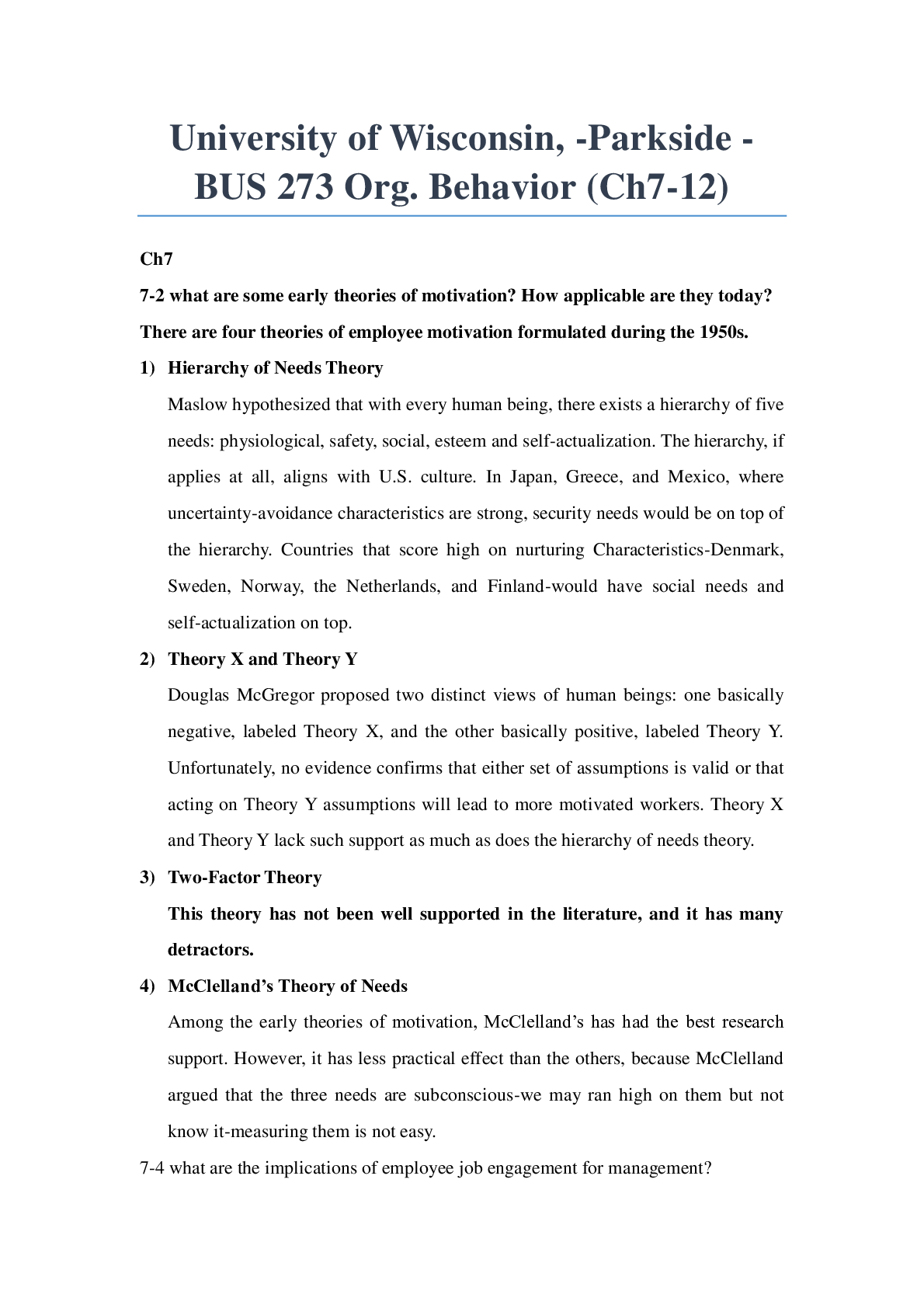
Buy this document to get the full access instantly
Instant Download Access after purchase
Buy NowInstant download
We Accept:

Reviews( 0 )
$12.00
Can't find what you want? Try our AI powered Search
Document information
Connected school, study & course
About the document
Uploaded On
Jan 11, 2021
Number of pages
6
Written in
All
Additional information
This document has been written for:
Uploaded
Jan 11, 2021
Downloads
0
Views
131

